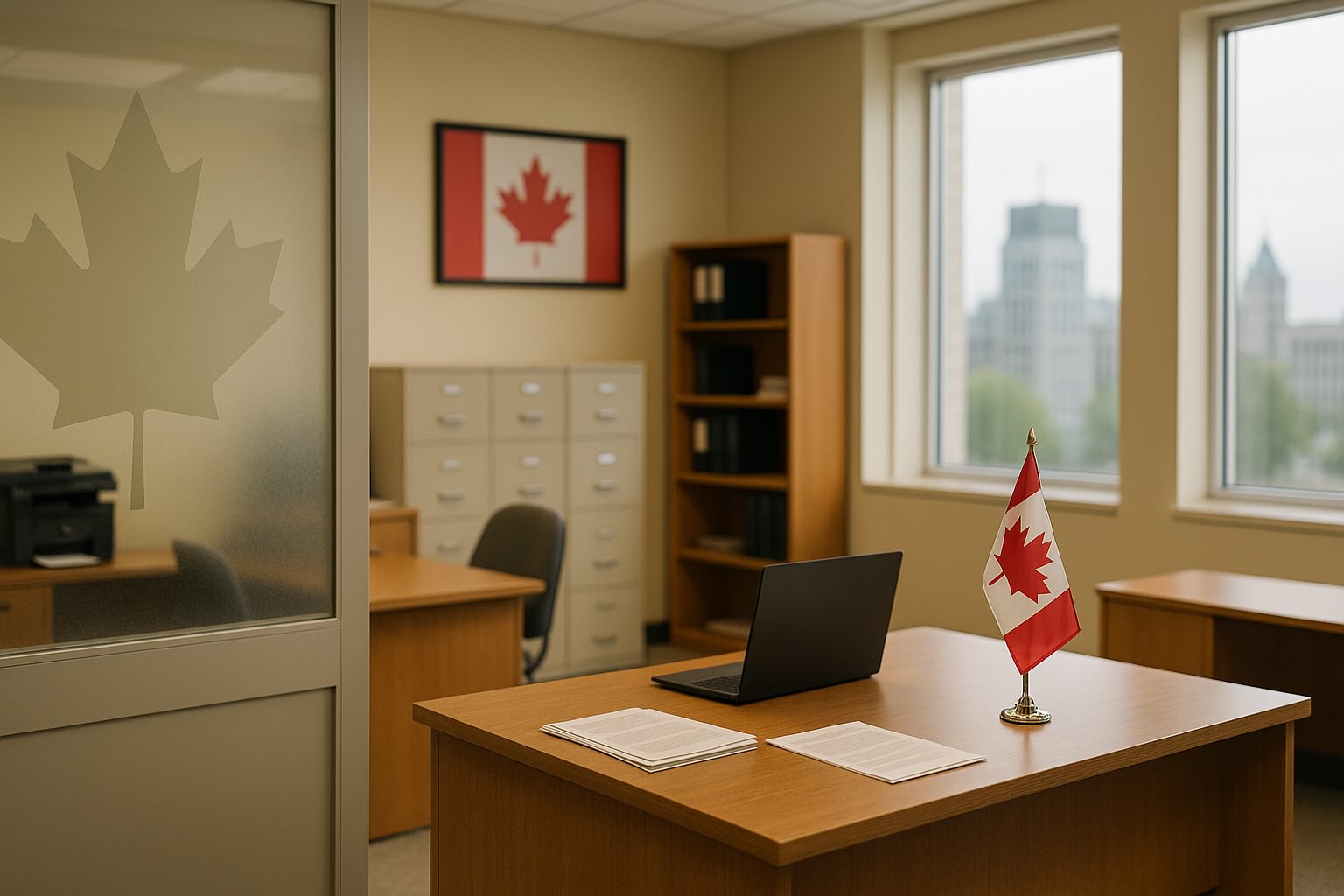
Alberta Issues 1,125 Provincial Nominee Invitations in Mid-November, Maintaining High-Frequency Draws Across Key Streams
In mid-November 2025, the Alberta Advantage Immigration Program (AAIP) issued a total of 1,125 provincial nominee invitations across two rounds, targeting candidates in the Healthcare Priority sector under Express Entry as well as the Alberta Opportunity Stream. The November 14 draw invited 80 healthcare candidates with a minimum score of 52, while the November 10 draw issued 1,045 invitations under the Opportunity Stream—a notably large round this year. With Alberta receiving over 1,500 additional nominations in September, bringing its 2025 total to 6,403, the province continues to strengthen efforts to retain local workers and attract healthcare professionals.
11/22/2025

Canada’s Conservatives Push for Major Amendments to Border and Immigration Bill C-12
On November 20, Conservative MP Michelle Rempel Garner, a member of the House of Commons Standing Committee on Citizenship and Immigration, announced that the Conservative Party will introduce a wide-ranging package of amendments to the federal government’s border security and immigration legislation, Bill C-12. She argued that Canada’s immigration system is under intense pressure and must undergo structural reform as soon as possible. The proposed amendments will focus on modernizing asylum procedures, strengthening border enforcement and security screening, adjusting criminality and removal thresholds, and increasing transparency across federal immigration bodies. The initiative comes amid rising asylum numbers, sustained growth in temporary residents, mounting pressure on housing and social services, and heightened scrutiny of immigration-related security reports—highlighting how immigration has become a heated issue in Canada and globally.
11/21/2025

Alberta Announces Sweeping Changes to AAIP Rural Renewal Stream: Community Quotas and New Work Permit Rules to Take Effect in 2026
The Government of Alberta has officially announced significant updates to the Rural Renewal Stream (RRS) under the Alberta Advantage Immigration Program (AAIP), marking one of the most substantial overhauls since the program's inception. Scheduled to take effect on January 1, 2026, these changes are a response to a surge in community endorsements that have far exceeded the province’s federal nomination allocations. To realign the program with provincial economic priorities and manage labor market pressures, Alberta will implement four core changes: establishing annual endorsement allocation limits for designated communities, setting a one-year validity period for candidate endorsement letters, introducing a TEER-based occupation assessment model, and enforcing a mandatory requirement for all in-Canada applicants to hold a valid work permit at both the time of application and assessment.
11/20/2025

Canada issues new round of Express Entry invitations for Healthcare and Social Services occupations
Immigration, Refugees and Citizenship Canada (IRCC) conducted a new Express Entry draw on November 14, 2025, issuing 3,500 Invitations to Apply (ITAs) to candidates in the Healthcare and Social Services occupations category. The minimum Comprehensive Ranking System (CRS) score required for this draw was 462—the lowest cutoff among the six Healthcare and Social Services draws held this year. This was also the third Express Entry draw of November, highlighting IRCC’s continued priority on recruiting healthcare professionals.
11/15/2025

Canada Issues 1,000 ITAs to CEC Candidates in Latest Express Entry Draw
On November 12, 2025, Immigration, Refugees and Citizenship Canada (IRCC) conducted a new round of Express Entry invitations, issuing 1,000 Invitations to Apply (ITAs) to candidates under the Canadian Experience Class (CEC). The minimum Comprehensive Ranking System (CRS) score required was 533, and candidates needed to have created their Express Entry profile before 3:39 a.m. Coordinated Universal Time (UTC) on October 17, 2025. To date, IRCC has issued more than 82,000 ITAs in 2025, with CEC, French-language category, and Provincial Nominee Program (PNP) draws remaining key priorities.
11/14/2025

Canada to Simplify Graduate Study Permit Process in 2026, Removing Provincial Attestation Requirement
Immigration, Refugees and Citizenship Canada (IRCC) has announced that, effective January 1, 2026, international master’s and doctoral students will no longer need to provide a Provincial or Territorial Attestation Letter (PAL/TAL) when applying for a study permit. The policy aims to simplify the application process, maintain the two-week fast-track for doctoral students, and remove all limits on the number of eligible applicants. Qualified students may also include their family members in their applications. The change is expected to further strengthen Canada’s position as a global leader in higher education and research.
11/13/2025

IRCC holds largest Express Entry PNP-targeted draw in nearly six months
On November 10, 2025, Immigration, Refugees and Citizenship Canada (IRCC) conducted the first Express Entry draw of the month, inviting 714 Provincial Nominee Program (PNP) candidates to apply for permanent residence. The minimum Comprehensive Ranking System (CRS) score was 738, and candidates needed to have created their Express Entry profile before 2:12 a.m. Coordinated Universal Time (UTC) on February 22, 2025. This was the first draw since the release of the new Immigration Levels Plan and the largest PNP-targeted Express Entry draw since April 14, when 825 invitations were issued. Year-to-date, IRCC has issued 81,223 Invitations to Apply (ITAs) through Express Entry.
11/12/2025

Quebec Announces Closure of Experience Program, Tightening Pathways to Permanent Residence
On November 6, 2025, the Quebec government announced that it will permanently close one of its most popular pathways to permanent residence—the Quebec Experience Program (Programme de l’expérience québécoise, PEQ)—which includes the Quebec Graduates Stream and the Temporary Foreign Workers Stream. Both streams will officially end on November 19, 2025. At the same time, three permanent immigration pilot programs will also conclude as scheduled on January 1, 2026. This means that, going forward, foreign workers and graduates seeking to obtain permanent residence in Quebec will only be able to apply through the Skilled Worker Selection Program (PSTQ).
11/08/2025

Canada to Increase Provincial Nominee Program Admissions by 66% in 2026, Strengthening Local Talent Attraction
According to Canada’s newly released 2026 Immigration Levels Plan, the federal government has set the Provincial Nominee Program (PNP) permanent resident target at 91,500, a 66% increase from last year’s 55,000. This marks a shift toward expanding provincial immigration pathways, giving temporary residents and international graduates greater access to permanent residence (PR). Several provinces have already negotiated higher nomination allocations with the federal government to help address ongoing labor shortages.
11/07/2025

Canada Immigration Levels Plan 2026–2028 Q&A: Understanding the Impact, Priorities, and Opportunities
On November 4, 2025, Immigration, Refugees and Citizenship Canada (IRCC) officially released the 2026–2028 Immigration Levels Plan, maintaining annual permanent resident targets at 380,000 for the next three years while gradually reducing the number of temporary residents—including international students and foreign workers. The plan aims to balance population growth with Canada’s housing, healthcare, and infrastructure capacity, while increasing the share of economic and francophone immigrants. This Q&A explains the plan’s key points, policy direction, and what it means for prospective applicants.
11/06/2025